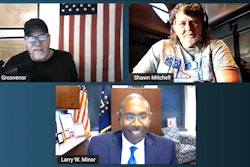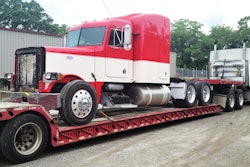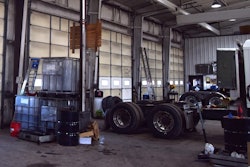Recent news has made clear that within the Department of Transportation's Office of Inspector General (OIG) there is certainly a priority placed on instances of load payment theft that involve fraudulent double brokering and identity theft. DOT's Midwest region lead for the OIG appears to have led parts of the investigation into the recently-busted Mexico resident who posed as a carrier, stealing that carrier's identity, then posing as a broker, to execute his scheme, making away with payment.
Yet perhaps more pernicious and perhaps more widespread are issues related to duly authorized motor carriers and brokers clearly working together to essentially misrepresent themselves into a load that comes from a very real broker or shipper and eventually makes its way to a very real carrier, but at a rate that's reduced from the original load agreement. This sort of double brokering relies on the ease of entry into the business and the low-manpower issues authorities have often cited over the last decade when asked why, for instance, the misrepresentation section of the broker regs (49 CFR 371.7) wasn't being enforced with any real might, given the wide extent of this problem.
[Related: How do you know you're working with a double broker? Increasingly, it's hard to tell]
I've written about this kind of scheme in recent memory, and some in the enforcement/legal community describe it with an analogy to the hub and spokes of a wheel, with untold numbers of carrier authorities set up as spokes and all connected to a brokerage authority at the hub to whom these carriers pass loads negotiated on internet boards to broker out to real carriers at reduced rates. The entire operation then pockets the difference, the load gets moved, and everybody gets paid, including the organized double brokers.
Hub-and-spoke well describes the structure of how these rings are set up, yet I like a somewhat different analogy for the ultimate effects of their proliferation. Think of such a ring as a big hydra-headed leech sucking the profits out of the spot market, distorting that market to unknown ends with activity on the boards -- at the expense of ... you got it, independent owner-operators and small carriers, and brokers for that matter, who operate aboveboard.
When Matt Cole and I spoke to FMCSA's new Administrator Robin Hutcheson a couple of weeks ago, I asked her just what the agency was doing or might be able to do about these rings, if anything, particularly given they take advantage of the FMCSA's own registration system to ply an illegal trade.










